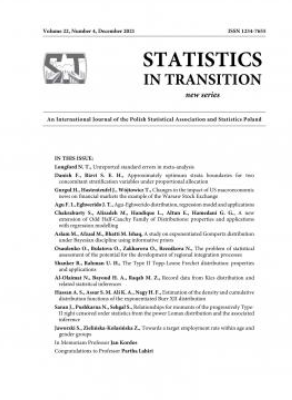Comparison of tree-based methods used in survival data
Comparison of tree-based methods used in survival data
Author(s): Aysegul Yabaci, Deniz SigirliSubject(s): Methodology and research technology
Published by: Główny Urząd Statystyczny
Keywords: tree-based methods; conditional inference trees; conditional inference forests; random survival forests;
Summary/Abstract: Survival trees and forests are popular non-parametric alternatives to parametric and semiparametric survival models. Conditional inference trees (Ctree) form a non-parametric class of regression trees embedding tree-structured regression models into a well-defined theory of conditional inference procedures. The Ctree is applicable in a varietyof regression-related issues, involving nominal, ordinal, numeric, censored, as well as multivariate response variables and arbitrary measurement scales of covariates. Conditional inference forests (Cforest) consitute a survival forest method which combines a large number of Ctrees. The Cforest provides a unified and flexible framework for ensemble learning in the presence of censoring. The random survival forests (RSF) methodology extends the random forests method enabling the approximation of rich classes of functions while maintaining generalisation errors low. In the present study, the Ctree, Cforest and RSF methods are discussed in detail and the performances of the survival forest methods, namely the Cforest and RSF have been compared with a simulation study. The results of the simulation demonstrate that the RSF method with a log-rank score distinction criteria outperforms the Cforest and the RSF with log-rank distinction criteria.
Journal: Statistics in Transition. New Series
- Issue Year: 23/2022
- Issue No: 1
- Page Range: 21-38
- Page Count: 18
- Language: English

